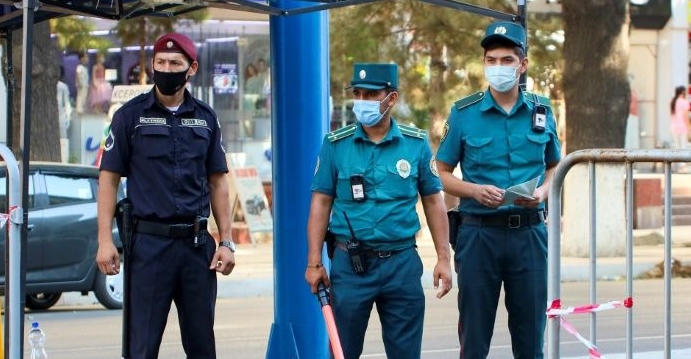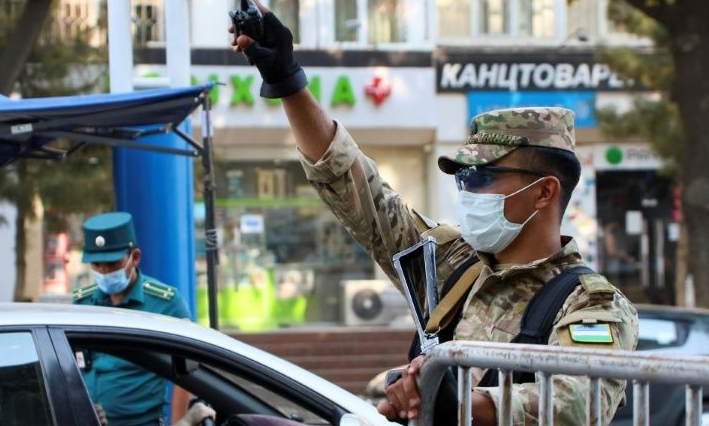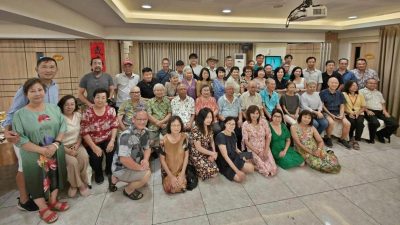By Shukhrat Khurramov, with Christopher Rickleton in Almaty
TASHKENT (AFP) — When comic Erkin Choliyev apologised for mocking the police, in a video posted by Uzbekistan's interior ministry, his loyal fans feared the worst.
Wearing a black mask, the diminutive actor famous for his infectious grin looked unusually serious as he explained that his hit comedy troupe Salty Bone had made a "mistake".
The comedians didn't have enough "information and knowledge" about traffic police in the ex-Soviet country and had painted an unfair portrait of them in a recent sketch, he conceded.
To most observers the apology — which looked forced — was a clear step backwards for a country that has touted historic reforms after emerging from more than 25 years of repressive, authoritarian rule.
Yet, within days, Choliyev had won surprise support from an unlikely ally: the Culture Ministry.
After enforcing strict censorship for most of Uzbekistan's three decades of independence from the Soviet Union, the ministry said comedy was important to "eradicate problems and vices" and "improve various areas of life."
"Why then are (these) jokes perceived as inappropriate?" it asked.
The drama surrounding Choliyev's satire has spotlighted the Central Asian country's uneasy transition from decades of authoritarianism under former strongman leader Islam Karimov, who died in 2016.

Dodgy territory
New shows like Choliyev's are cited as examples of progress in Uzbekistan, where popular political and economic reforms under new leader Shavkat Mirziyoyev saw it named "country of the year" by The Economist magazine in 2019.
Yet emerging artists and celebrities taking jabs at the authorities have been left feeling in the dark for the poorly defined boundaries of what the new authorities deem threatening.
During makeup before filming a new sketch about police this month, Choliyev said he had no plans to change the tone of his hugely successful show that airs on a private channel and garners tens of thousands of views on YouTube.
"Of course, there are still people who slander our work," the comic said.
He acknowledged that the government's grip over creative expression has loosened and freedom of expression had arrived "to some extent" in the republic of 33 million.
"There are people who support our work," he said. "And it is gratifying that such people are in the majority."
Yet criticism of the police is still dodgy territory. And Choliyev is not the only public figure to have learned this the hard way.
In May, when a popular singer used insulting words on social media to describe an interaction with police — including the phrase "I spit on you" — police in the capital Tashkent threatened to press charges against her.
Honour and dignity
The singer, Yulduz Usmanova, who lived in exile in Turkey for part of the Karimov period after complaining of political pressures, later apologised for the comments.
Police said they had dropped the case against her in June, citing "psychological stress" that Usmanova was under.
Both the singer and the comic hailed the role played by police during the coronavirus pandemic in their apologies.
While neither star faced charges, the incidents illustrate the "grey zone" of freedom of speech under Karimov's former protege and successor, says Vladislav Lobanov, a Central Asia researcher at Human Rights Watch.
"It is the same with media — we have seen websites become a bit more critical, a growth in the number of bloggers, but nobody can say where the line is," Lobanov told AFP by phone.
He noted that the government's failure to follow through on a pledge to decriminalise defamation only added to the uncertainty.
Meanwhile, the authorities have not rushed to clarify where the new limits lie.
Although the culture ministry backed Choliyev, it stressed that it could not endorse humour that "degrades the honour or dignity of specific individuals."
Asked whether it would support jokes about the president or top officials — a staple of satire in Europe and the United States — ministry spokeswoman Mavlyuda Askarkhadjayeva smiled and said the question was "loaded."
"We have that type of humour as well," Askarkhadjayeva told AFP without offering examples.
"But our comedians usually focus on themes that are the most relevant to our people."

ADVERTISEMENT
ADVERTISEMENT


































